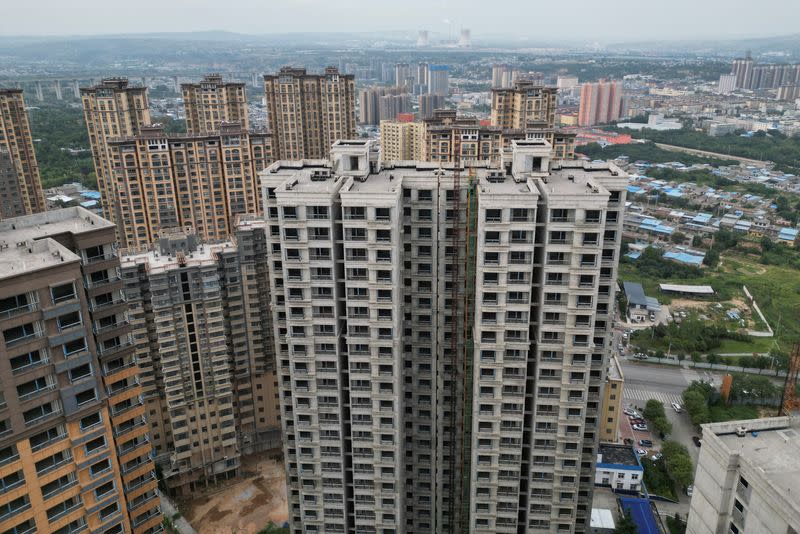Social anguish about China’s economic slowdown has spawned a new expression to describe the feeling that many of its poor, jobless and less fortunate citizens feel: “The garbage time of history.”
The phrase – reportedly based on a term from basketball for the last minutes of a game when the outcome is clear – has been used to encapsulate the pessimism about prospects for people getting jobs, better incomes and life chances.
It apparently started in a discussion on history and has since become a heavily censored online thread about whether China’s workers and investors should give up.
ALSO SEE: Key EV Software Must be Made in an Allied Nation: US Official
China’s recent economic data has shaken public confidence. Growth in the past quarter fell short of forecasts at 4.7%, highlighting the huge weight of a protracted property crisis and stalled consumer spending.
China’s Communist Party leadership concludes a closed-door meeting on Thursday expected to detail Beijing’s economic strategy for the next several years, including steps to promote technology.
China Daily, in a front-page story on Wednesday, described one aim of the meeting as reviving confidence in the country’s “long-term economic trajectory.”
Phrase damned as worse than ‘lying flat’
The fatalistic tag “garbage time” began popping up on social media platforms over the past month. It was given a more recent boost when state media and commentators lined up to denounce the phrase and any suggestion that decline would follow downturn for China.
“This is a catchphrase insinuating that there’s no help and no hope, denying and downplaying everything in China,” Beijing Daily said in a commentary last week.
It follows another buzzword China’s censors have targeted as a threat to stability since it broke into the mainstream three years ago: “lying flat,” a call to a slacker life of limited ambition and quiet protest.
Wang Wen, a finance professor at Renmin University and former columnist for the state-controlled Global Times, said earlier this month the idea of an era of garbage time was “more dangerous” because of its implicit message of hopelessness.
“It completely denies China’s current development situation and attempts to create public expectation that the country will eventually fail.”
‘Futile struggle’ article censored
The first apparent mention of the term on China’s internet came last September from Hu Wenhui, an editor at a small publication in Guangzhou.
In an article that has been since censored, Hu argued that the history of the Soviet Union after 1979 and some Chinese dynasties suggest that some historical failures are inevitable,a comment some read as an implicit comment on current events.
“When the overall situation is set and defeat is inevitable no matter how hard you try, it’s just a futile struggle,” Hu said. “How should those unfortunate enough to encounter the garbage time of history conduct themselves?” Hu could not be reached for comment.
In June, the topic appeared to get a boost in online discussions. Some on social media platform Weibo said in comments still visible this week that the idea had struck a chord with some ordinary people.
“There are quite a few people who begin to feel that as long as they can’t change anything, this is history’s garbage time,” one said.
There are other signs China’s collective confidence has suffered, according to survey data collected by Stanford University professor Scott Rozelle and others published in summary last week by the US think tank Center for Strategic and International Studies.
Rozelle found Chinese respondents to a survey were more pessimistic than they had been two decades ago, more likely to blame structural factors for determining whether a person is rich or poor and far less likely to believe hard work pays off.
In 2004, 62% agreed “in our country, effort is always rewarded.” That dropped to 28% in the 2023 survey.
- Reuters with additional editing by Jim Pollard
ALSO SEE:
40 China Banks Hit by Debt, Slowdown ‘Merged’ in 2024 – N’week
Conflicting Goals Could Limit Outcomes From China’s Plenum
Climate Crisis Has Cost China Billions Already This Year
China’s Guangzhou R&F Properties Faces Liquidation Petition
Global Banks Slash Investment Units in China Amid Slowdown – FT
Pics of Dejected Chinese Graduates go Viral – Guardian
























